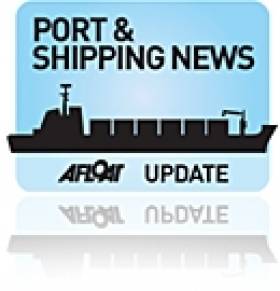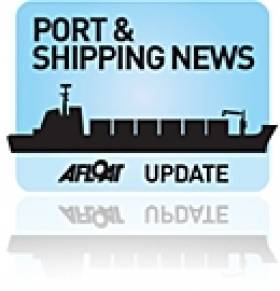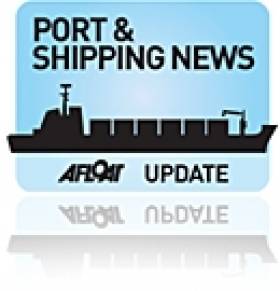Displaying items by tag: EU Ports Policy
#Port Policy – The Transport Committee of the European Parliament yesterday had a first exchange of view on the Commission Proposal for a Port Regulation, which was published in late May.
The European Sea Ports Organisation (ESPO) acknowledges that the Commission proposal addresses some important conditions for ensuring port cargo handling on a level playing field:
by tackling the transparency of financing in ports, by recognising the freedom to provide port services by considering the setting of charges and the minimum requirements for port services as important tools of port management.
But the Commission proposal disappoints, since it partly undermines those principles:
by intervening in the commercial freedom of ports and port authorities to vary charges according to the port management's economic strategy;
by prescribing how ports and port authorities should deal with their clients;
by imposing additional administrative burden to ports which are not competing at the European scene;
by creating an independent supervisory body.
In that overall context, ESPO and its members cannot accept the regulation proposal as it stands.
"We welcome the fact that the Commission is considering European ports as engines for growth. European ports are facing enormous challenges: growing volumes, ever-increasing ships, further globalisation, increasing societal and environmental pressure. They need a policy that empowers them to meet these challenges, not rules that create additional burden for ports without real benefit for the port industry or the users. We hope European policy makers understand our concerns and want to work with us in view of obtaining a framework that means a step forward for every single port in Europe", says Isabelle Ryckbost, ESPO's Secretary General.
ESPO fears that the Commission proposal in its current form will hamper well performing ports:
The diversity of the European port sector makes it impossible to frame all ports and their managing bodies within one stringent legal framework, without giving in on their specificity and on the particular role ports are playing for their national and regional economy.
Differences in size, geographical situation, governance, tasks, financial situation, etc. makes it very difficult to develop a set of rules that goes further than guiding principles.
Moreover, by restricting the commercial freedom of EU port authorities and interfering in port-related governance competences, the Regulation proposal could hamper the necessary transition of European port authorities towards dynamic port developers and worsen the position of ports which are already high performing.
Finally, European ports do not see the port regulation as the instrument that will improve the competitiveness of ports.
There are other, more important, factors that can enhance the level playing field in the port sector that need to be tackled: internal market for maritime transport, environmental rules affecting transport patterns and modes, unfair competition with third neighbouring countries, and burdensome customs procedures.
ESPO's full response to the proposed Port Regulation can be found HERE..
Ports & Shipping Review: Fodder Record, Ferry Facelift, Maritime Day, New ESPO Head, Magnifica’s Call and more…
#ShippingReview: Over the last fortnight Jehan Ashmore has reported from the shipping scene where the fodder crisis, the worst in over 50 years has led to ports witness unprecedented levels of animal feed imports.
New Zealand ferry operator Interislander which has extended the charter of Dublin based ICG group ro-pax ferry Kaitaki is to receive a major refurbishment by Newry based MJM Marine.
Foynes is to welcome three cruise callers this season, starting with Voyages of Discovery's 15,396 tonnes Voyager.
Malta hosted the 6th European Maritime Day, where a conference of experts from all maritime sectors from around Europe and also present was Dinny McGinley TD, Minister of State who made a speech that was welcomed by the Marine Institute.
Vice President Siim Kallas European Commissioner for Mobility and Transport, announced the publication of a regulation proposal on market access to port services and financial transparency, as well as a new communication on ports policy.
Another maiden port of call to Dublin Port was by the 95,000 tonnes MSC Magnifica, the 'Musica' class vessel built in 2010 is operated by MSC Cruises, which last year started calling to Irish ports.
European Sea Ports Organisation (ESPO) has appointed Isabelle Ryckbost as the new Secretary General, succeeding Patrick Verhoeven.
Also heard at the 10th agm of the ESPO conference held in Varna, Romania, was mixed reaction over the new ports policy on regulation and communication announced by the European Commission.
ESPO Wants to Safeguard Autonomy of Port Authorities
#EUPortsPolicy – Vice President Siim Kallas, European Commissioner for Mobility and Transport, has announced the publication of a regulation proposal on market access to port services and financial transparency, as well as a new communication on ports policy.
European Sea Ports Organisation (ESPO) welcomes the fact that both initiatives value the important role that seaports play for the European economy. This complements the Commission's earlier initiative to give ports a central position in the Trans-European Transport Networks.
ESPO is however concerned about the potential implications the regulation proposal may have on the autonomy of port authorities.
"We appreciate that the Commission intends to recognise the central role of port authorities and we support the provisions of the regulation that aim to create greater financial transparency", said ESPO Secretary General Patrick Verhoeven, "At the same time, we are concerned about the competencies that the regulation attributes to other authorities and the impact some of the proposed procedures may have on the commercial freedom of ports and their ability to invest."
The regulation proposal excludes cargo handling and passenger services from market access rules. ESPO believes that an inclusive, non-legislative approach, covering all port services, would have been more balanced and proportional in this respect.
On 29 May, the General Assembly of ESPO will adopt a formal position, prior to the organisation's annual conference in Varna, where the new proposals will be discussed for the first time with industry stakeholders.
In the weeks following the conference, ESPO intends to further analyse the regulation proposal, taking into account the impact on the diversity of its membership.
"We will then formulate a number of concrete recommendations for the forthcoming debate in Parliament and Council. We also look forward to exchanging views with other European stakeholder organisations, to see where we might have points in common", concluded Patrick Verhoeven.































































